Spotlight on Our Future Agenda’s Network of Young People
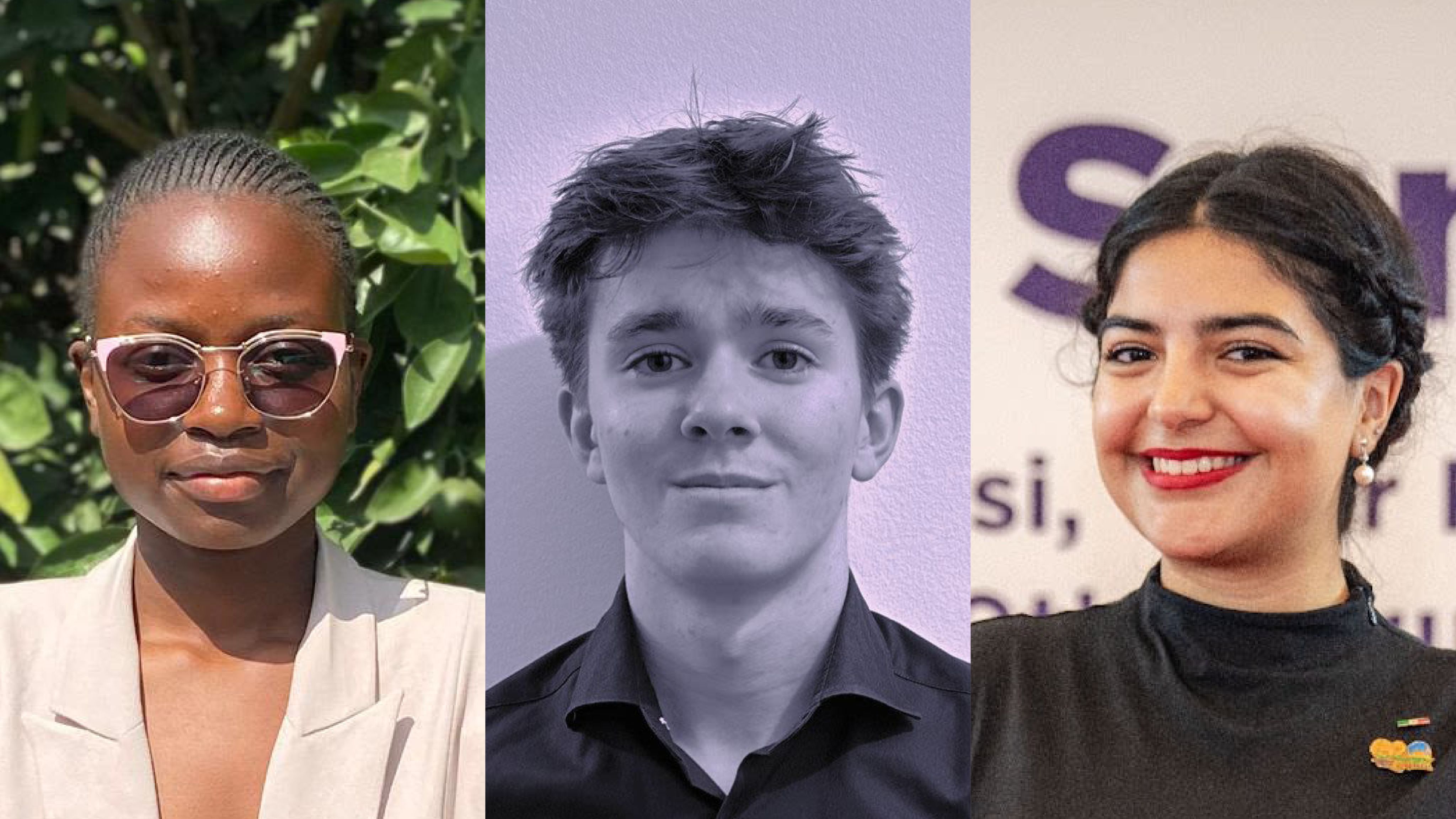
Last month the Engine Room for the Future held its first pitstop event for 2025 on the pressing issue of “Financing the Future.”
We brought together an intergenerational panel of global leaders, economists, and young changemakers who broke down complex financing issues and explored innovative recommendations for Sustainable Development Goal (SDG) financing.
The three featured young leaders are leading voices in global advocacy. We invite you to learn more about these leaders and their thoughts below.
Maureen
Championing Children’s Rights and Effective Financing
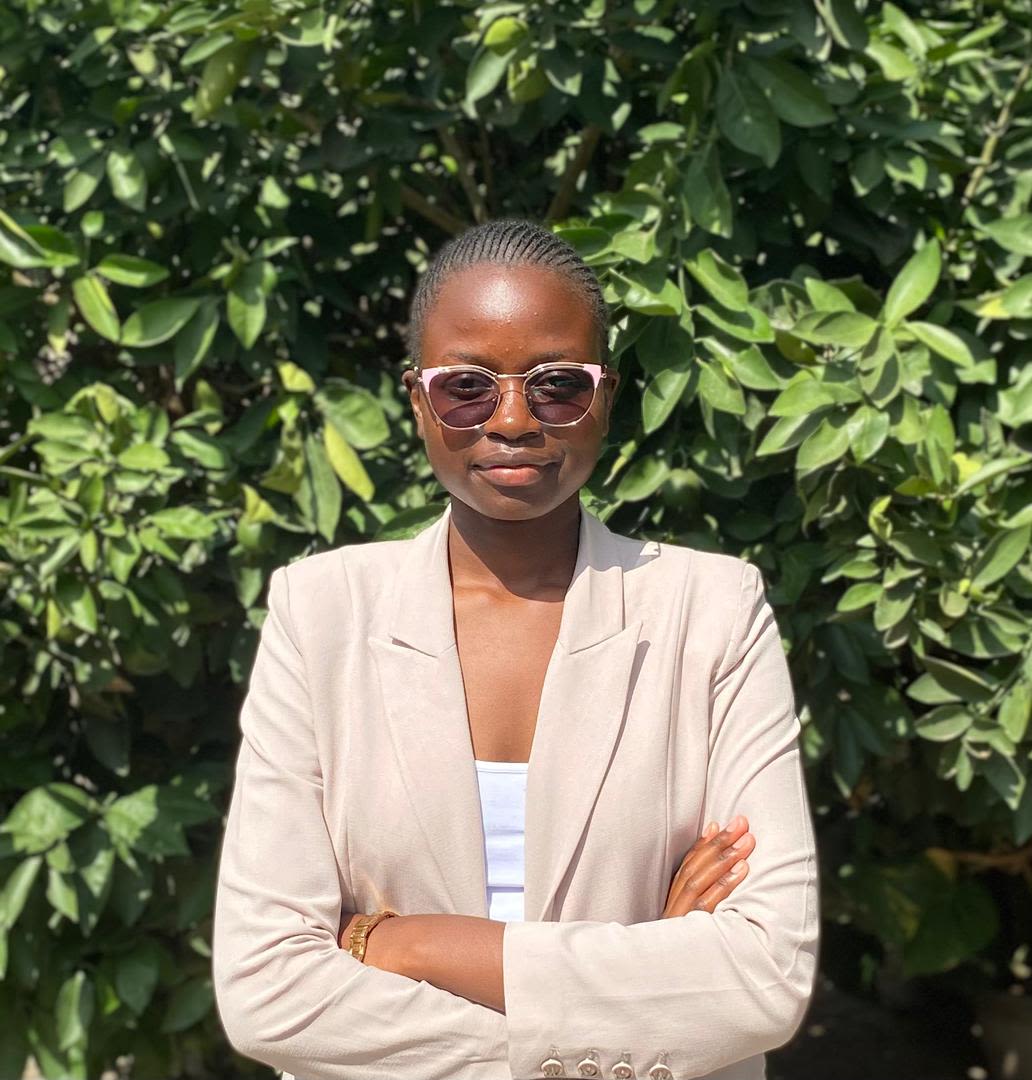
Maureen Makungu is a Zambian Child Rights advocate who fiercely advocates for youth inclusion and child rights protection. She is a highly engaged member of the Child Budget Network where she has advocated to policymakers for improved spending on children’s programmes at the national level. Maureen represents the interests of young Zambians – using her platform to call on policymakers to ensure public funds are well-managed, and effectively used to improve the welfare of Zambian children.
Maureen has been closely involved in activities that promote the successful implementation of the SDGs. She has participated in lobbying activities for adequate funding towards sustainable development and youth empowerment in Zambia. In alignment with Our Future Agenda’s mission to bridge the gap between local perspectives and global solutions, Maureen has represented Zambian youth at the international level. Most recently, she participated in the UN General Assembly at the civil society level in New York City, and continues to make great strides as a young changemaker.
When offering her insights to our Engine Room participants, Maureen called upon her lived experiences – highlighting the critical challenges young Zambians face due to limited infrastructural capacities in sectors such as education and health.
She illuminated the audience on how cash transfers – a social protection initiative meant to economically empower individuals living in poverty – do not successfully address the needs of poor households. She placed emphasis on the need for cash transfer amounts to increase synchronously with rapidly rising inflation rates, or else they will continue to be ineffective in necessarily supporting vulnerable populations.

"Cash transfers – a social protection initiative meant to economically empower individuals living in poverty – do not successfully address the needs of poor households. We need to ensure that these transfers increase in line with inflation, or they will remain ineffective in supporting vulnerable populations."

Gustav
A New Vision for Global Prosperity
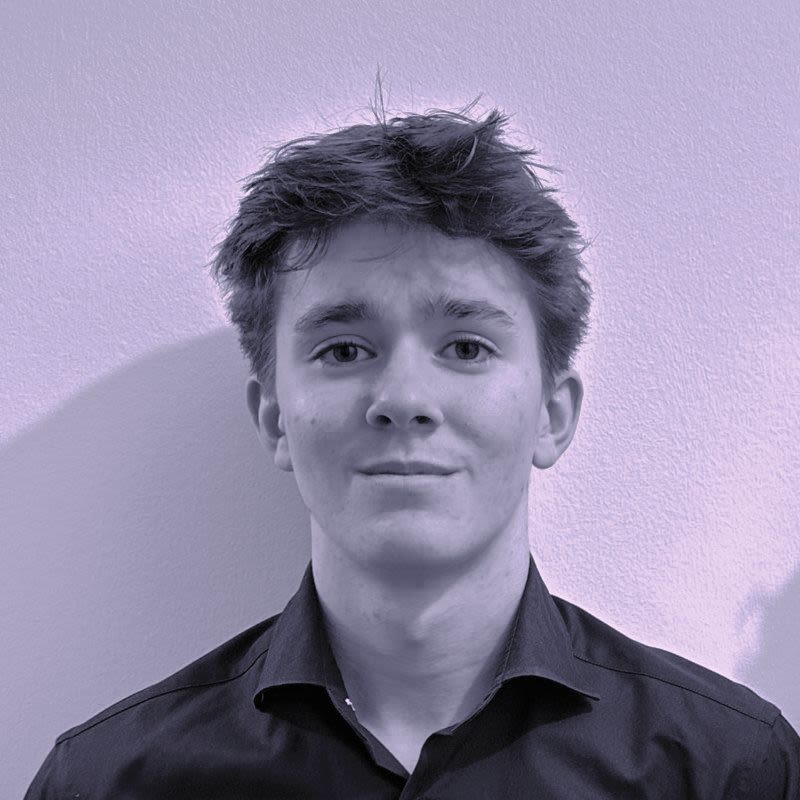
Gustav Krigslund-Hansen is currently an Economics student at the International School of Zug and Luzern (ISZL) with a focus on global economic systems, development policy and sustainability. He is an emerging voice in the fields of quantitative economics and market analysis. Gustav takes an innovative approach to remedying global inequalities by studying how novel economic frameworks can foster sustainable growth. He translated his imaginative ideas into an action-oriented framework assessing economic progress beyond GDP, highlighting the impact of externalities in global development. This framework was recognized internationally, and was one of the winning essays in the UN Trade and Development (UNCTAD) and Rethinking Economics Beyond GDP Essay Competition.
Gustav is a changemaker with a curious mind and a global outlook. Fluent in Danish and English, and conversational in German and Spanish, he brings a cross-cultural lens to everything he does. As a student of classical economic theory, Gustav isn’t afraid to question the old rules—he blends deep academic insight with bold, fresh thinking to reimagine how development works. Whether he’s exploring ways to make the economy more sustainable or pushing for more intergenerational collaboration, Gustav is part of a new wave of thinkers shaping solutions for a world in flux.
During his presentation at our Engine Room Pitstop, Gustav shone light on the vast inequalities between the Global North and South. He highlighted that wealthy states' economic growth not only widens global inequalities, but also hinders sustainability and economic growth in developing countries. He articulated to the audience – “GDP fails to account for such exploitative dynamics and instead rewards economic expansion regardless of its ethical and environmental costs.”
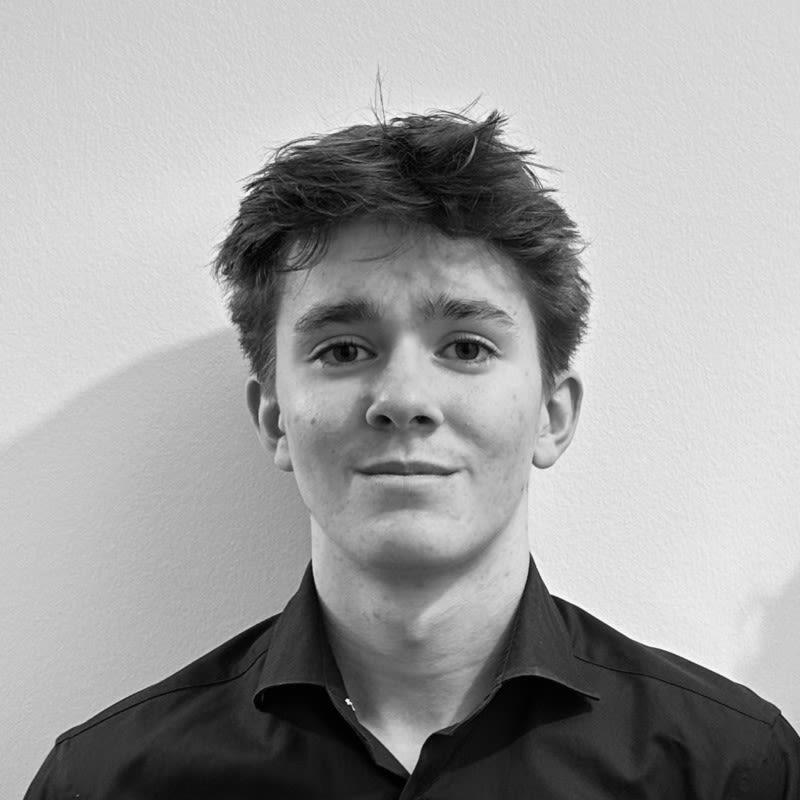
"GDP fails to account for such exploitative dynamics and instead rewards economic expansion regardless of its ethical and environmental costs. Wealthy states' economic growth not only widens global inequalities, but also hinders sustainability and economic growth in developing countries."

Valeria
We Need More than Words to Fund the Future
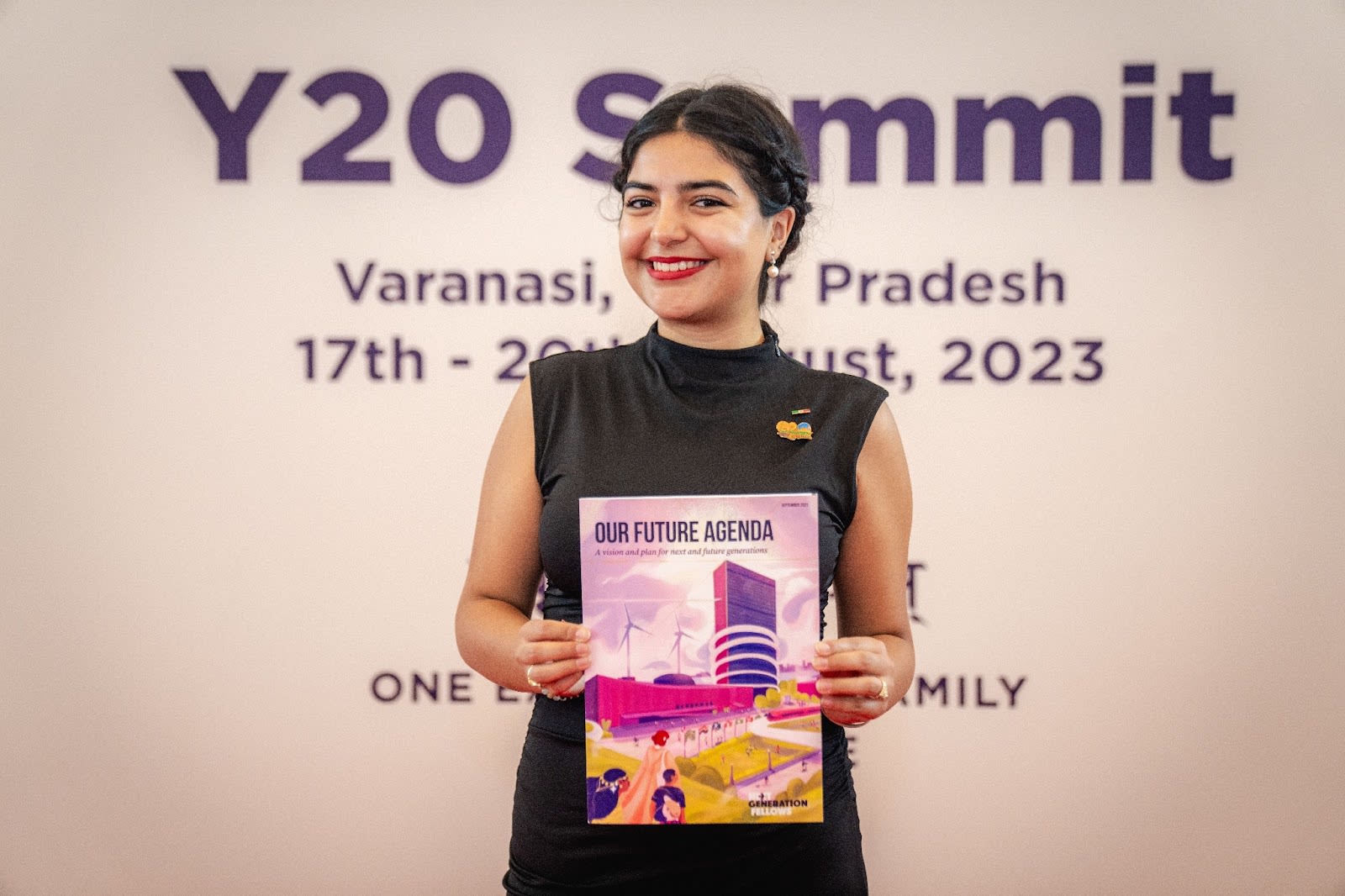
Valeria Colunga is a bold voice from Mexico reshaping global conversations on equality and sustainable development. As a social entrepreneur and Executive Strategy Officer at Southern Voice – a network of think tanks from the Global South – she’s working to bridge knowledge gaps and champion the perspectives too often left out. A fierce advocate for girls and young people, Valeria sits on the Global Advisory Board for Girl Up, where she helps guide the organization’s strategy and amplify youth-led solutions.
Driven by purpose and grounded in action, Valeria has already made her mark on the global stage – from representing Mexico at the G20’s Y20 Summit in India to developing future-focused policy as a UN Foundation Next Generation Fellow. In that role, she led high-level dialogues with the UN Secretary-General, the UN Youth Envoy, and UN Foundation leadership, pushing for more inclusive, equitable systems.Whether she’s leading strategy, shaping policy, or standing up for girls’ rights, Valeria shows the power of youth leadership to challenge the status quo and drive real change. She’s not just participating in global decision-making – she’s helping to rewrite the rules.
As Valeria moderated our last pitstop, she highlighted the need to rethink our system. As she noted in the opening, “to achieve the SDGs by 2030, we need to mobilize an additional $2.5 trillion annually.” She underscored the need for action plans, timelines and structure if we are to turn the commitments made in FfD4 into actionable solutions.

"To achieve the SDGs by 2030, we need to mobilize an additional $2.5 trillion annually. We must rethink our system and ensure action plans, timelines, and structure are in place to turn commitments into actionable solutions."

